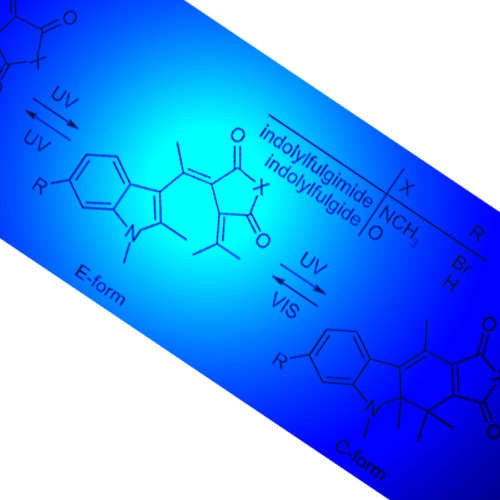Photochemistry with thermal versus optical excess energy: Ultrafast cycloreversion of indolylfulgides and indolylfulgimides
25-Sep-2009
Journal of Photochemistry and Photobiology A: Chemistry, 2009, doi:10.1016/j.jphotochem.2009.07.012, Volume 207, Issues 2–3, Pages 209–216 published on 25.09.2009
Journal of Photochemistry and Photobiology A: Chemistry, online article
Journal of Photochemistry and Photobiology A: Chemistry, online article
The dependence of the pericyclic ring-opening reaction of indolylfulgides and indolylfulgimides on excess energy is investigated by quantum efficiency measurements and by ultrafast spectroscopy. The ring-opening reaction shows a pronounced improvement of reaction efficiency up to a factor of 6, when excess energy is available either by increasing the temperature or by exciting the molecules above the 0–0-transition. Ultrafast spectroscopy allows to deduce time constants for the ring-opening reaction and leads to a theoretical model, where the redistribution of excess energy among different vibrational modes is considered. The analysis shows that excess energy supplied by optical excitation accelerates the ring-opening reaction less efficiently than thermal energy. Apparently vibrational relaxation from highly excited modes to modes promoting the ring-opening reaction is not completed within the ∼10 ps duration of the ring-opening reaction.











